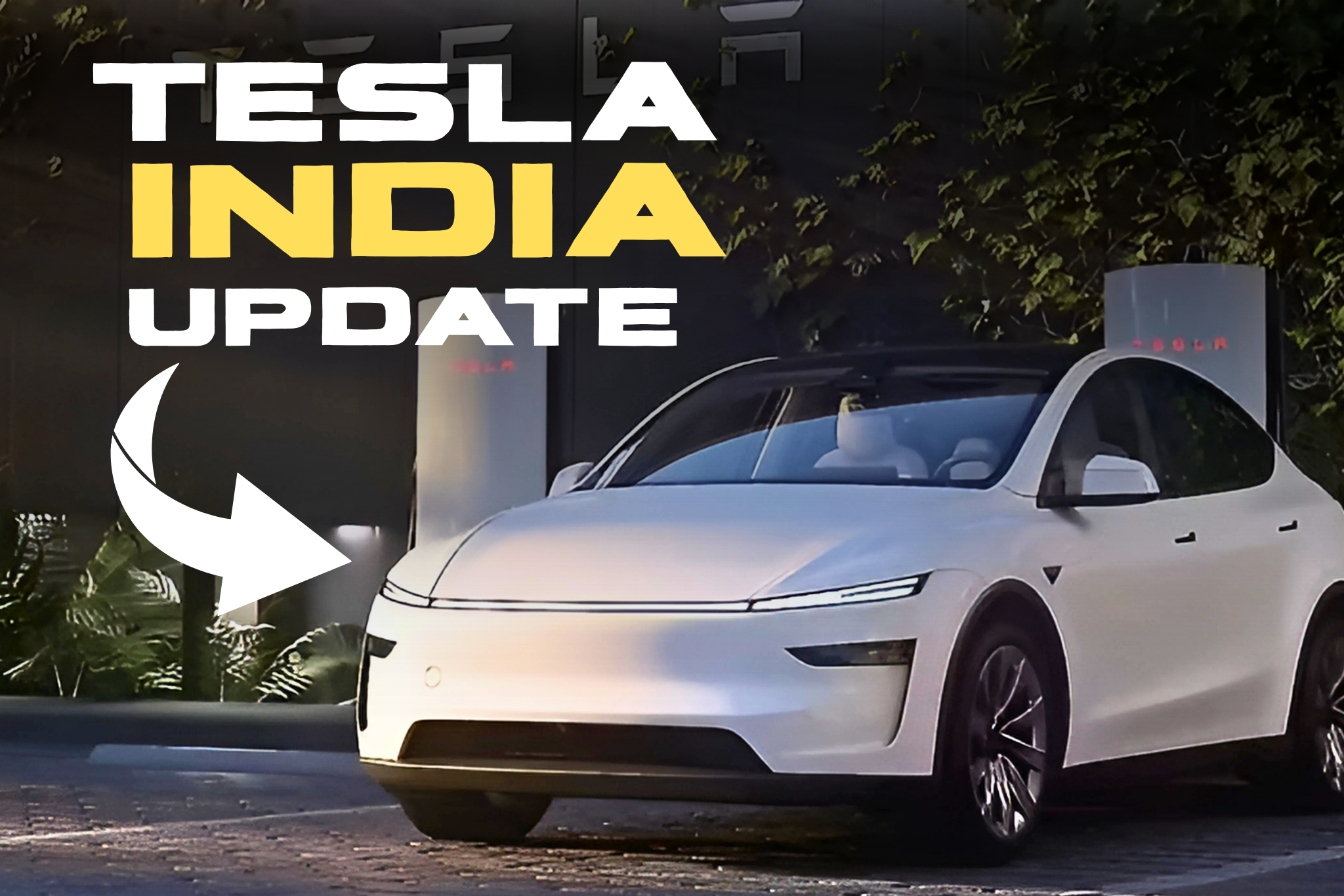Tesla Model Y long-awaited entry into the Indian automotive market is finally taking shape, but the excitement seems to be dimming as initial numbers roll in. The Tesla Model Y, one of Tesla’s most successful models globally, has received only 600 bookings in India to date — a surprising figure given the buzz surrounding the brand.
This lukewarm response raises critical questions about Tesla’s strategy, pricing, and readiness for the Indian EV ecosystem. Let’s explore the full picture.
Tesla Model Y in India?
Tesla recently started accepting bookings for the Tesla Model Y electric SUV in India, aiming to launch deliveries by early 2026. The variant offered is expected to be the long-range version, packed with advanced features, a minimalistic interior, and Tesla’s signature Autopilot software.
However, the EV pioneer is yet to establish a local manufacturing plant or even an assembly unit. This absence of local production has driven up costs significantly, making Tesla’s India offerings more expensive than local or Chinese competitors.
Current Tesla India Highlights:
- Only 600 bookings to date (as per early reports)
- No confirmation yet on local assembly or production
- Expected price: ₹70–75 lakh (ex-showroom)
- Deliveries likely by Q1 2026
- First phase to target metro cities with premium EV buyers
Why the Lukewarm Response?
Several factors are contributing to the modest booking numbers for Tesla in India, despite the brand’s global appeal.
1. High Pricing
The Model Y is priced far beyond the reach of the average Indian EV buyer. With no local manufacturing yet, import duties are making Tesla a luxury purchase rather than a practical EV alternative.
2. Lack of Charging Infrastructure
India’s charging network is still in the developing stage. While metros like Delhi, Mumbai, and Bangalore have started building infrastructure, it’s nowhere close to what’s needed to support long-range electric vehicles across the country.
3. Range Anxiety and Service Concerns
Tesla cars offer excellent range on paper, but range anxiety still affects potential buyers in India, where charging stations are few and far between. Service networks and spare part availability are also major concerns for such a premium product.
4. Local Competition
Homegrown brands like Tata Motors, Mahindra, and international players like BYD are already offering competitive EVs at lower price points. While these may not match Tesla’s tech, they offer value and accessibility to Indian EV buyers.
Tesla’s Strategy Going Forward
To succeed in India, Tesla may need to shift from a premium-only model to a locally manufactured, mid-segment approach. Talks are reportedly underway between Tesla and the Indian government to explore:
- Tax incentives for setting up a local plant
- Reduced import duties for EV components
- Faster EV policy rollouts for infrastructure boost
- Land acquisition discussions for a Gigafactory-style plant
If these plans materialize, Tesla could price its models more competitively and unlock a massive growth market.
Conclusion: A Bump in the Road or Strategic Entry?
Tesla’s 600 bookings may seem underwhelming, but it also reflects a strategic, cautious entry into a price-sensitive and infrastructure-limited market. While the Model Y’s initial response is lukewarm, a lot can change if Tesla begins local production and aligns its pricing with Indian expectations.
India represents a high-potential EV market — and Tesla’s long-term play could still pay off, provided they adapt quickly.
🔍 SEO Keywords to Include:
- Tesla Model Y India
- Tesla India booking update
- Tesla Model Y sales report India
- Electric SUV India 2025
- Tesla vs Tata EVs
- Model Y price in India
- Tesla India launch 2026
- Low Tesla bookings in India
- Tesla India strategy
- Tesla Gigafactory India

